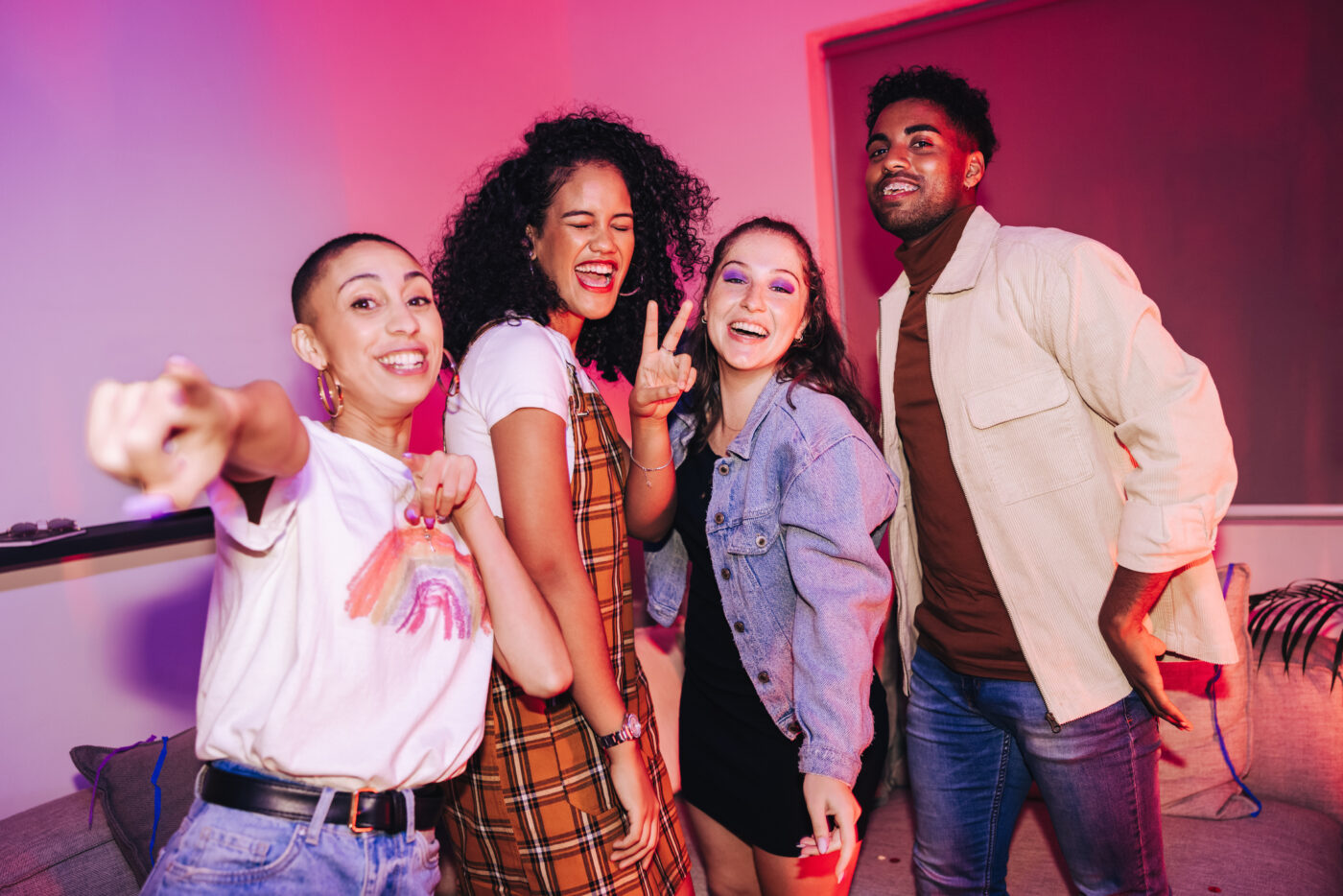
4 Key Themes To Boost Your Gen Z Marketing
Article Highlights
- The importance of a killer youth marketing strategy
- Representation
- Social media and youth culture
- Using influencer marketing to supercharge your youth marketing strategies
- Authenticity and youth marketing
Be the first to access new posts and exclusive content
Gen Z is an era-defining generation. As well shaking up how we communicate, shop, and work, they’re our future colleagues, managers, activists, and world leaders. In other words, the future is in their hands.
Taking the time to understand what’s important to Gen Z will empower brands to launch carefully crafted campaigns, boost engagement (and spending!), and gain loyal, lasting customers. In our latest Voxburner+ guide, Youth Marketing | 4 Key Themes to Make It Big With Gen Z, we explore four key topics all youth marketers need to understand to better engage with young people. Supported by contributions and exclusive data cherry picked from Voxburner’s Youth Marketing Strategy New York event (that’s YMS NYC to you and me), Voxburner+ insights, and learnings from marketers and industry leaders, this report is a must-read for all youth marketers.
And, naturally, we wanted to give a little sneak peek of what’s to come below…
The importance of a killer youth marketing strategy
This generation has been through a lot: from rising inflation to worldwide pandemics, Gen Zers are having their formative years shaped by international events.
It therefore may come as no huge surprise that over half (55%) of this generation are reported to feel highly stressed, as stated by Joeri Van den Bergh, co-founder of Human8, at YMS. But it’s not all doom and gloom, with recent Voxburner research revealing that 78% of Gen Z feel positive about the future.

And how can we, as brands and youth marketers, help to support this cohort of young people and ensure that their hope is justified? Through investment, supporting them in whatever way possible and, of course, having a truly great youth marketing strategy.
Gen Zers are looking for connection, both with each other and brands. And whilst their needs may not be wildly different from previous generations, that doesn’t mean your marketing strategy can remain the same…
Representation
This generation is one that understands, values, and expects equal and fair representation, from the marketing they consume to the brands they shop with. But aside from prioritising DE&I being the right thing to do, why is this important to brands?
Representing your target audience will make a positive commercial difference; if young shoppers can’t see themselves in your marketing efforts, they’re unlikely to engage with your brand. And no engagement equals no sales. Additionally, brands who champion representation and inclusivity will earn the respect and trust of consumers, meaning these Gen Z shoppers will return to your brand again, and again, and again.
What does Gen Z want from brands?
A significant 49% of consumers want to see people that look like them in advertising, revealed Therese Carusio (Managing Director at Zano Group) in her YMS session A New Multicultural America: Meet the Individual Collectivists. And the key here is authenticity – Gen Z can see straight through performative diversity, and isn’t afraid to call you out!

One way to ensure that your DE&I strategies are truly making a difference is by having a diverse team throughout every stage of the ideation, innovation, and creative processes. This will enable you to draw upon different experiences and ensures that messaging and products are as representative of your audiences as possible, from social media posts to your overarching marketing strategy. In fact, Voxburner+ research recently revealed that 59% of Gen Z say it’s very important for places of work and education to make their boards accessible and visible in an attempt to be transparent. You can read more about this in the full guide.
Social media and youth culture
Gen Zers were born social, and for many young people their whole lives have been lived online – so much so that many are turning to TikTok as a place to source information, health advice, and recommendations (more about this in our Supercharge Your Gen Z Marketing for 2023 guide).
“The only way to understand Gen Z is to spend time in their world”, Jordan Scheffler, co-founder and managing partner at Crewfare, shared at YMS NYC. “TikTok is the most prevalent platform here – it’s a search engine platform for Gen Z.” And this is backed up by the stats – Clint! Runge from youth culture agency Archrival shared that 50% of Gen Z believe their algorithm knows their tastes better than they do, and a huge 45% rely on the algorithm to discover new things.

Foot Locker x TikTok
Surprise, surprise: the brands killing it with Gen Z on social media are those that lean into fun personas rather than heavily corporate content. One great example comes from Foot Locker, a brand which marketing consultant and ex-Foot Locker Francine Feder spoke about at YMS NYC.
Upon discovering that Foot Locker employees were posting organically on their personal TikTok accounts, the brand decided to tap into this content for their upcoming marketing efforts. And with Gen Z employees central to their messaging and content, the campaign was a huge success.
“Through their own lens, each featured talent documents … and shared how they celebrate all things sneakers with the “officials” of the sneaker world at Foot Locker”, Francine explained. Make sure you check out the full campaign here.
Be sure to check out the full guide on Voxburner+ for our four predictions for the future of social media.
Using influencer marketing to supercharge your youth marketing strategies
Influencer marketing works – it’s a tried and tested method that all youth marketers know resonates with young people. In fact, Andrew Dawson (Brandwatch) took to the stage at YMS NYC and stated that the industry will reach $16.4B in revenue in 2023.
But including influencers in your youth marketing strategies doesn’t necessarily mean that your social media posts will engage shoppers, or even reach the right audience. Jess Flack, CEO and co-founder of Ubiquitous, shared at YMS that 46% of consumers feel fatigued by influencer content, stating that attention spans are shorter than ever before: users who saw an ad 6-10 times were 4% less likely to buy a product than those who saw it 2-4 times.

So what’s the problem? Well, as stated, placing a random influencer at the front of a campaign just isn’t going to work. Brands have to choose the right influencer and work to ensure that the messaging is bang on. Gone are the days of working with international names – this is an industry where the ordinary stands out. You can learn more about the rise of microinfluencers in our Supercharge Your Gen Z Marketing for 2023 guide.
As Jess shared in the YMS session How Today’s Top Brands Run Influencer Marketing Campaigns: “Your grandma could be an influencer, your next-door neighbour could be an influencer!”. One word: authenticity.
3 tips for taking your influencer marketing campaign to the next level
- Understand where your audience spends time and experiment with new platforms and formats. Measure performance and continually optimise results.
- Never script content. Content creators know TikTok better than you and they know how to talk your audiences, so trust them.
- Use your platforms to deep dive into serious topics. Offer support to your communities – influencers are becoming more open about their mental health, with even big-name celebrity Bella Hadid sharing the realities and pressures of her life. Gen Z consumers tend to vaue realness, and this applies to online communities, too.
Be sure to check out the full guide, where we deep dive into why influencer marketing is so important and what the future of the industry looks like.
Authenticity and youth marketing
It’s all well and good having a killer advertising strategy, but are you executing it in an authentic way? Is there real support, and are there meaningful conversations, happening the background, away from prying consumer eyes? Well, if the answer is no, bad luck: Gen Z is on to you.
During his YMS session Your Funnel is F*cked: How Zs are Rewriting Your Marketing Plans As We Speak, Clint! Runge (Archrival), shared that only 25% of Gen Z trusts advertising. This is a community of young adults who demand authenticity, not just aspirational (and often unattainable) content. And those brands that champion authenticity will be rewarded with their loyalty. Eve Williams, CMO of eBay, shared at a recent YMS LDN event: “[Gen Z] are an incredibly discerning audience… it’s massively important that brands take the responsbility to ensure that the way we’re articulating ourselves to our community and our customers really reflects who we’re speaking to.”
In summary, Gen Z wants brands to hold themselves accountable when they make mistakes – something that actually breeds more trust than if it was just swept under the rug.

3 tips to authentically connect with Gen Z
- Allow your creators to create! If you’re running influencer campaigns, remember who the expert in the room is. Content creators are more skilled when it comes to social media and they understand the Gen Z demographic more than you ever will.
- Keep it real. Whether you’re a retail brand or a place of higher education, it’s important to remember that Gen Z is often turned off by overly-packaged content.
- Tap into Gen Z’s values. Therese Caruso, Managing Director at Zeno Group, shared that the most powerful way to connect with this generation is through their values. Stuck for ideas? Check out the rest of the Voxburner blog, where we explore the values, trends, and causes that are important to young people and discuss how these impact your marketing efforts.
So there you have it – four key themes to make it big with Gen Z. We can’t wait to see where you take your youth marketing strategies next!
Want more like this? Subscribe to Voxburner+ to read the full guide (and receive your complimentary tickets to our YMS events) now!



